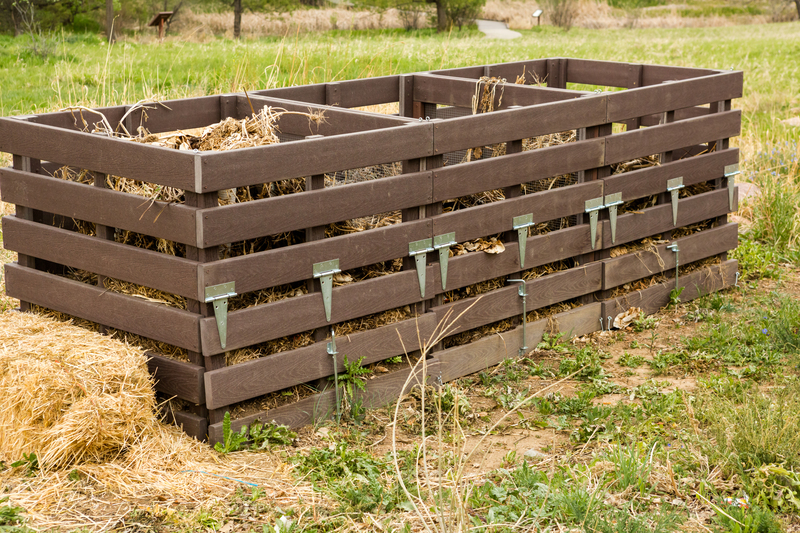Exploring Sustainable Energy Sources: From Wind Farms to Solar Panels
Posted on 17/09/2024

In today's world, the topic of sustainable energy sources is becoming increasingly important. The need to reduce our reliance on fossil fuels and find alternative, renewable sources of energy has become a top priority in order to combat climate change. In recent years, there has been a significant shift towards exploring and utilizing sustainable energy sources such as wind farms and solar panels. In this article, we will take a closer look at these two popular forms of sustainable energy and discuss their pros and cons.
Wind Farms:
Wind farms are large clusters of wind turbines that harness the power of the wind to generate electricity. These turbines consist of blades that rotate when the wind blows, powering a generator to produce electricity. They can be found both onshore and offshore, with offshore wind farms being able to generate even more electricity due to stronger winds.
Pros:
1) Renewable Source of Energy: Wind is an infinite resource and will never run out, making it a highly sustainable form of energy.
2) Environmentally Friendly: Unlike fossil fuels, wind energy does not emit harmful gases or pollutants into the environment, making it a clean source of energy.
3) Cost-Effective: The cost of generating electricity from wind has significantly decreased in recent years and is now competitive with traditional sources of energy.
4) Job Creation: Wind farms require a significant amount of labor for installation, maintenance, and operation, providing job opportunities in local communities.
Cons:
1) Visual Impact: Wind turbines can be quite large and may not be aesthetically pleasing for some people.
2) Intermittent Availability: Wind energy is dependent on the weather conditions and therefore may not always be available for use.
3) Noise Pollution: The rotating blades can produce noise that can be disruptive to nearby communities.
Tips:
- Conduct thorough research before investing in a wind farm project to determine if it is suitable for your location.
- Consider community opinions and address any concerns they may have regarding the visual impact and noise pollution.
- Regular maintenance of wind turbines is crucial to ensure their efficiency and longevity.
Takeaways:
Wind farms are an efficient and sustainable form of energy that can play a significant role in reducing our reliance on fossil fuels. However, they must be carefully planned and managed to minimize any potential negative impacts on the environment and surrounding communities.
Solar Panels:
Solar panels, also known as photovoltaic (PV) panels, use sunlight to generate electricity. They consist of multiple solar cells made from silicon, which convert sunlight into direct current (DC) electricity. This electricity can then be converted into usable alternating current (AC) electricity through an inverter.
Pros:
1) Renewable Source of Energy: Like wind energy, solar energy is abundant and will never run out, making it a reliable form of sustainable energy.
2) Low Maintenance: Solar panels require minimal maintenance and have a lifespan of 25 years or more.
3) No Noise or Air Pollution: Unlike traditional sources of energy, solar panels do not produce any noise or air pollution.
4) Cost-Efficient: While the initial cost of installing solar panels may be high, the cost of generating electricity from them is relatively low in the long run.
Cons:
1) Weather Dependent: The efficiency of solar panels is dependent on weather conditions and may not perform optimally in cloudy or rainy weather.
2) Space Requirements: Solar panels require a significant amount of space for installation, which may not be feasible for smaller properties.
3) Battery Storage Needed: To store excess energy generated by solar panels for later use, battery storage systems are needed which can add to the overall cost.
Tips:
- Consider the angle and orientation of your property when deciding where to install solar panels for optimal efficiency.
- Research different types and brands of solar panels to determine which one would be most suitable for your needs and budget.
- Regularly monitor and clean your solar panels to maintain their efficiency.
Takeaways:
Solar panels are a clean and efficient form of sustainable energy that can significantly reduce our carbon footprint. However, they do require careful planning and consideration, particularly in terms of space and cost, before investing in them.
Conclusion:
In conclusion, exploring sustainable energy sources such as wind farms and solar panels is crucial for a greener and more sustainable future. While both these forms of energy have their unique pros and cons, they provide viable alternatives to traditional sources of energy that are damaging to the environment. As technology continues to advance and improve, we can expect to see even more innovative and eco-friendly methods of generating renewable energy emerge. By being mindful and making conscious choices about our energy consumption, we can contribute towards a cleaner and healthier planet for generations to come.

Latest Posts
Real Estate Investment Guide for Barnet
Barnet Life: Views from the Locals
Get Acquainted with Barnet: An Insider's Look at the Suburb





